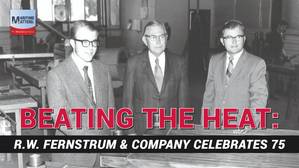The House USCG and Maritime Transportation Subcommittee held a hearing on H.R. 316 (the Cruise-to-Nowhere Act of 1999, which would prohibit gaming in all states that haven't passed a bill specifically allowing it). The subcommittee heard from eight witnesses divided among four panels, with the first two panels consisting of a single witness: Rep. Frank Wolf (R-Va.), chief sponsor of H.R. 316, and Florida Attorney General Bob Butterworth, who joined Wolf in support of the bill.
Panel three, opponents of the bill, included Allen Walker, president of the Shipbuilders Council of America; C. Dean Hofmeister, chairman/CEO of SeaEscape Cruises; Lester Bullock, president of the Day Cruise Association; and Robert Williams, chairman of the Port of Palm Beach.
Two supporters of the bill, Bernie Horn, political director of the National Coalition Against Gambling Expansion and Steve Welsch, president of the Beach Defense Fund, comprised the fourth panel.
H.R. 316 would amend the Gambling Devices Transportation Act, the federal statute commonly known as the Johnson Act, to make it clear that a state, in order to ban cruise-to-nowhere gaming in international water, is not required to enact a statute specifically prohibiting such activity. Under the bill, states would be allowed to use existing state laws prohibiting land-based casino gaming to prohibit gambling aboard cruise-to-nowhere vessels.
Only two subcommittee members, Wayne Gilchrest (R-Md.), chairman, and Rep. Gene Taylor (D-Miss.), attended the entire hearing. Rep. Peter DeFazio (D-Ore.) was present for part of it.
Primary among the concerns mentioned at the hearing, was whether the bill would affect only U.S.-flag vessels, which would force those operations out of business, leaving foreign-flag vessel unaffected. In his testimony, Horn said H.R. 316 would not give an advantage to foreign-flag vessels, nor would it discriminate against U.S.-flag vessels.
Sponsored Content
Lower carbon intensity fuels to support your operations

Subscribe for
Maritime Reporter E-News
Maritime Reporter E-News is the maritime industry's largest circulation and most authoritative ENews Service, delivered to your Email five times per week










